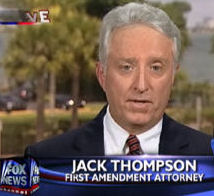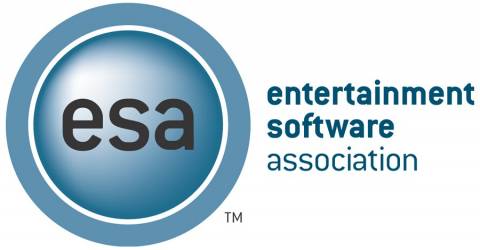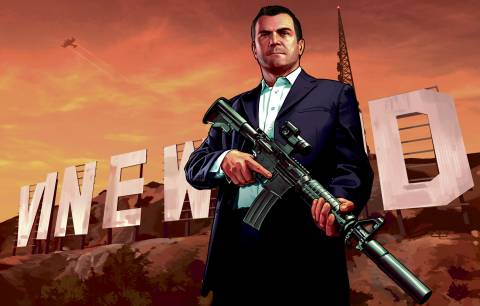I'm coming up on ten years working professionally in this industry (something I'll reminisce more about in a month or so). This realization has me feeling a bit nostalgic lately, not to mention thinking about the many changes that have come in that time. I'm of course referring to things like the huge advances in technology and interactivity we've seen, the groundswell of support for independent gaming, the rise of competitive gaming as a medium people will actually pay attention to, and a greater focus from the endemic press (not always positively, certainly) on the human side of the game industry, among other things.

These are all, to be sure, major shifts that have occurred over a relatively short span of time, as these things go. As an industry, we have most certainly evolved into something bigger, crazier, and frankly just a lot more interesting than what we were ten years ago. Which is why I find it all the more frustrating that we're still dealing--or, in many cases, not dealing--with the same cultural problems that plagued this business long before I even started in earnest.
Back when I began my career, video games were mostly mired in a place of cultural scapegoating and mockery. Jack Thompson, the patron saint of saying ridiculous things and somehow getting the media to repeat them, had just begun his war on Grand Theft Auto and the supposed sickening violence of our industry. Fast-forward to January, 2013. The primordial crazy being spouted by Jack Thompson has been taken up by actual politicians. And no, I'm not just talking about the likes of Leland Yee, whose campaign to ban violent video games in California was met with an expensively dismissive wanking motion from the Supreme Court. I'm talking about those who, in the wake of the tragedy at Sandy Hook, have taken to violent games as the scapegoat du jour. I'm talking about major political figures like Vice President Joe Biden, who has at least shown an ounce of restraint when talking about the need to research the link between violent video games and violence in reality, as well as Senator Lamar Alexander, who demonstrated the opposite of restraint when he said violent video games were "a bigger problem than guns."
It boils down to this: as I look at the perception problems that plagued the industry in the past, and the perception problems that plague the industry now, I'm seeing far more overlap than I feel like I ought to. But why is that the case?
For one thing, I don't think we've ever done a particularly good job of defending ourselves. Gamasutra's Kris Graft wrote an intriguing piece back when Biden was first making overtures to the game industry over Sandy Hook. The whole piece is worth a read, though to sum it up, Graft basically believed that going to meet with Biden under the auspices of helping to "fix" gun violence in America was tantamount to admitting we're part of the problem. In my opinion, he was absolutely right. While I respect those who disagreed with Kris--including IGN's EIC Casey Lynch, whose retort was equally thoughtful--having seen the result of the meeting, it's difficult to believe that our representatives going there really did much of anything except to help galvanize the notion that violent video games really do have a serious place in this conversation. Now the news media has picked up on this violent video games angle all over again, just as it did with Jack Thompson so many years back.
Ignoring outreach from the Vice President's office wouldn't have necessarily been a smart move either, because that says we're indifferent to these kinds of problems. Rather, it might have been nice to see a response to Biden's invitation that rejected the question of "how can we help to stop gun violence in America" on the merits that video game violence has never been linked directly to actual violence, or at least not any more than violent films, violent music, or whatever else. The ESA, who are ostensibly the lobbying agency for our industry, have made a few limp reiterations of that fact in statements following Sandy Hook and the meeting with Biden. It was the ESA who helped win us the right to constitutionally protected free speech in that fateful Supreme Court case. So why are they not more confidently responding now, knowing this is the case?

There are those of us out there who are, at least, trying to steer the conversation back to a saner place. The always great Adam Sessler had an interesting bit on Fox News' live webcast this past week, speaking about the history of video games and their similar persecution compared to music, film, and even opera. Plenty of writers have written intelligent op-eds expressing weariness over the continuation of this debate, especially in the face of all the research that's been done previously. But it often feels like we're talking at ourselves. Hell, I'm probably just as guilty of that right now as anyone else. Which is why I maybe find it a bit frustrating that those who are chosen to represent us in the larger scope of the world aren't more assertively balking at this notion that we need even more research into these supposed links between violent games and real world violence. Why have I not seen a press conference that simply features the head of the ESA staring slack-jawed at a TV monitor featuring Wayne LaPierre's airing of grievances over Mortal Kombat and Bulletstorm? Why has nobody in any position of significant power in this industry simply gotten in front of a camera and said, "Look, you have got this all wrong..."?
Again, I don't have a solid answer to that, though I imagine business reasons most certainly factor in. It's difficult for the game industry to turn the tables on the NRA's hateful video game rhetoric when you consider that the same arms manufacturers that fund the group are the ones who hold the rights to the guns we license for those same violent video games that the NRA supposedly is lambasting. That's a web of ugly that reared its head this week thanks to Eurogamer's Simon Parkin. I haven't been able to get it out of my head since.
Biden's office was right about one thing. The video game industry does have a perception problem, but the issue isn't solely inherent to the violence it purveys. We, as enthusiasts of the medium, are often portrayed as loners, social outcasts, and, quite frankly, cringe-worthy human beings by those who have not taken the time to understand that those are really only a very small portion of our greater whole. People aren't so much worried about "violent video games" as they are "violent video games played by people who are probably socially awkward serial murderers." The picture of seething, hateful blobs of humanity resting comfortably in an office chair as they curse at and "pwn" people in grotesquely violent shooters has become the default picture people call up when thinking of those who play games. There are people like this, and they are loud, crude creatures who frankly misrepresent the notion of what gaming is supposed to be about (fun, competition, interactivity, creative expression, among other things). There are awful people like this in every facet of entertainment, but somehow, we've let our awfuls become our default image. Angry commenters, forum trolls, and thoughtless haters are stealing our narrative and feeding into this resentful and fearful perception people have of what games are all about. All the while, those who are actually paid to represent this medium are quietly nodding along, trying to figure out how to right a ship that feels like it's been rudderless for ages.
Ultimately, it starts with us, and our seeming inability to communicate our better qualities to the outside world. It's not as if gaming hasn't produced remarkable stories outside of the most wretched connections to those who do terrible things. As one particularly recent example, amid all the THQ layoffs of last week, it impressed me to no end how quickly the many developers and publishers came together to collect and promote job listings for those who suddenly found themselves unemployed. I can't think of another industry so quick to spring into action like that when their peers--and, quite frankly, their previous competitors--find themselves in a tough spot.

Cleaning up our image isn't just about making ourselves look less overtly obsessed with violence (though, that would probably help). It's about making people recognize us as people, making them recognize the good this industry is capable of, and that any large community can't be adequately judged by its few bad eggs. We've spent way too much time allowing the media, politicians, and frankly a good chunk of the rest of the world dehumanize us into easily dismissed, mock-worthy caricatures. We've let a perceived obsession with violence define us.
We have made major strides in recent years at diversifying this medium, both in terms of the kinds of games we play, as well as those who call gaming a personal pastime. But we've done this quietly, internally, and in a way that has clearly had no major impact on how those outside of our core group view us. As a result, here we are, however many years later, still facing these same issues, these same stereotypes, these same political push-backs that feel like they should have dissipated into obscurity long ago.
I guess I just find all of that a little bit sad.
--A